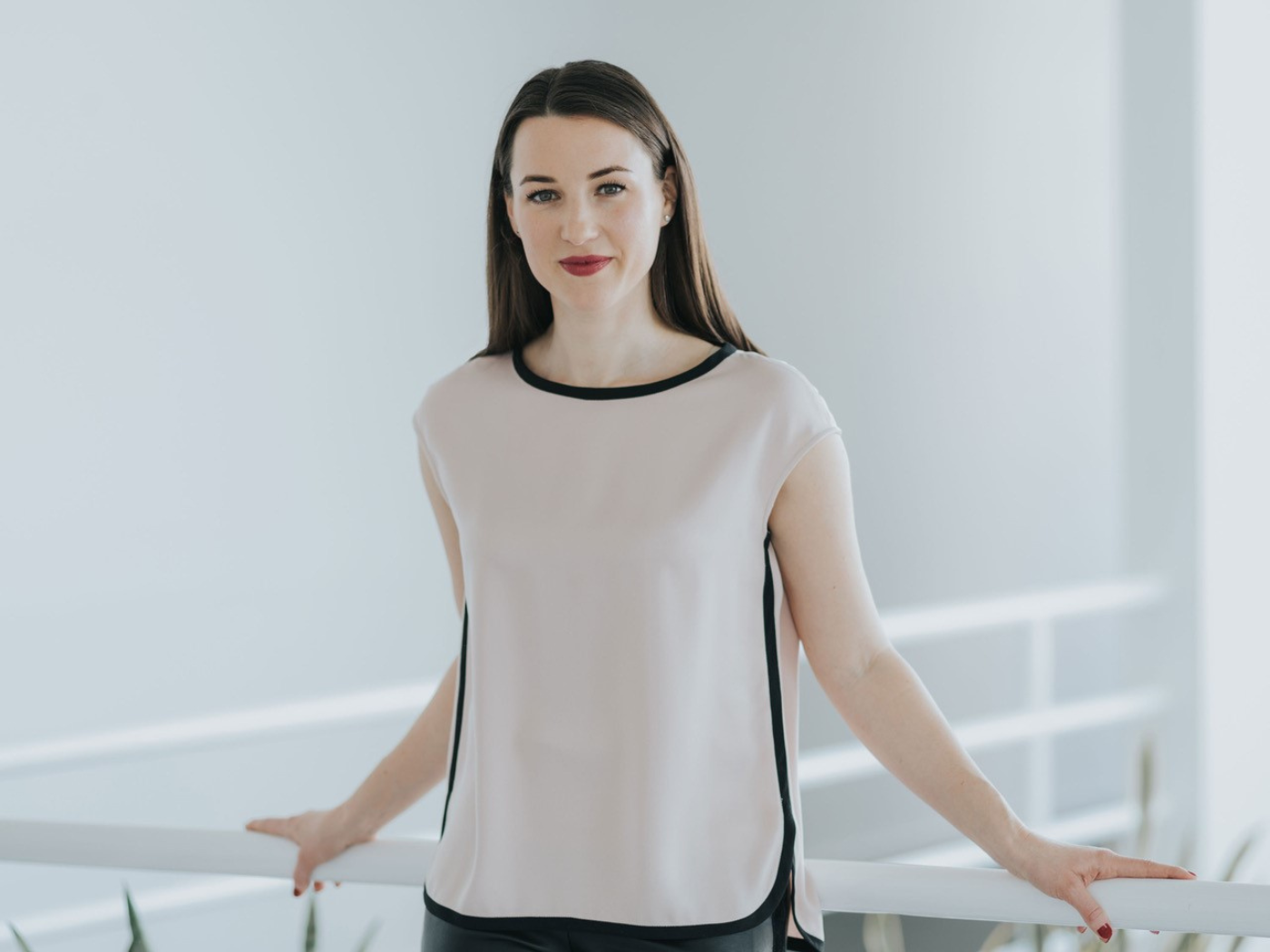Crystal infused makeup brand, Āether Beauty, was developed by Sephora’s former Head of Product Development in 2018 on Instagram. Today it’s looking to be the next Urban Decay with its line of high-performance eyeshadow palettes.
Bridging the gap between wellness and color cosmetics, cosmic-inspired indie brand, Āether Beauty, has tapped crystals for their beautifying powers for an all-natural line of eyeshadow palletes. Aimed at consumers who are concerned about ingredients but don’t want to sacrifice efficacy, the digital-first brand has expanded sales from its website aetherbeautyco.com, to clean beauty retailers Credo Beauty and The Detox Market. Partnerships with Neiman Marcus and Urban Outfitters have followed, and in the coming months the brand will roll out at Anthropologie, Sephora and Nordstrom. Āether Beauty was developed by Tilla Abbitt, who worked as Sephora’s Head of Product Development for Accessories and Makeup Collaborations for seven years. Here, Tilla spoke to Beauty Insider about white space for the brand, retail partnerships and future plans.
Beauty Insider: Tell us about Āether Beauty’s point of difference.
Tiila Abbitt: Āether Beauty is a supercharged, sustainable makeup brand. All formulas feature crystal-charged pigment, meaning certain cosmetic grade gemstone powders are infused into formulas for skin care benefits. For example, the Rose Quartz Crystal Gemstone Palette has rose quartz infused in each shade because it helps to prevent wrinkles, redness and fine lines, while also helping to promote love and self-love. Additionally, the line is vegan, cruelty-free and made with organic and fair-trade ingredients. The brand is also zero waste and is made with 100 percent recyclable packaging. Plus, 10 percent of proceeds of each pallet goes to different charities that we partner with such as The Water Project, which provides clean water to communities in Africa.
BI: Why was it important for you to create a sustainable brand?
TA: I felt like the clean beauty space truly lacked storytelling and emphasis on both sustainable packaging and formula. I’ve also been a vegetarian since I was 14 and always lived an organic lifestyle, so I volunteered to wear another hat while at Sephora, becoming the Head of R + D for Sustainability for the entire retailer on top of my normal day to day role. It drove me to research and learn beyond chemical formulations to truly understand how unsustainable packaging is in cosmetics. I visited recycling facilities to learn how things are recycled, and what simply goes straight to landfill. The EPA just announced that one-third of landfill waste is from personal care products. It was intensely eye-opening, and it sprang the idea to create a truly sustainable brand, from beyond clean to sustainable sourcing ingredients and packaging.
BI: Āether Beauty started as a DTC brand. Why did you decide to enter brick-and-mortar?
TA: DTC can be challenging for a new brand, especially a self-funded indie brand who is just starting, unless you already have a really big audience like Kylie Jenner. Retail helps drive a sense of credibility and awareness for a start-up. It also allows consumers to have a personal experience with the brand, such as seeing shades, testing efficacy and falling in love with products immediately. A lot of our DTC customers always tell us that it’s much more beautiful in person, so entering retail helps more consumers experience that. Also, from my years of experience with Sephora, I know DTC can really drive this aspect, especially if you have the right partners.
BI: What are the price points?
TA: Palettes are $58. The brand is positioned approximately 20 percent higher than Urban Decay and Anastasia Beverly Hills because of the clean, organic and fair-trade ingredients and sustainable packaging. It’s more expensive to produce, just like organic food is about 20 percent higher in cost to conventional food. Also, the fill size is more generous and about one and a half times the fill of a normal Anastasia palette, so consumers are getting more product overall for their dollars. We have launched individual replacement shadows as well, which are currently all sold out, to help with the sustainability footprint of the brand.
BI: Tell us about marketing/communications plans.
TA: We’re an Instagram-first brand. We drive awareness and exposure through inspiration collages that incorporate our brand attributes such as cosmos, crystals and inspiring messages that promote self-esteem and empowerment. We also have a strong focus on influencers, makeup artists and celebrities, mostly vegan/cruelty-free focused, but also mainstream beauty lovers, who receive our mailings. We’ve been blessed with a lot of love from the influencer community, which we believe speaks volumes about our brand. We also love print, T.V. and online, so we have some traditional public relations outreach in place. I’ve been on a lot of desksides and love meeting face to face with media to really explain the brand. Our goal for 2019 is to expand our digital marketing footprint to drive added brand awareness and drive overall reach to targeted audiences.
BI: How many SKUs are available? What upcoming launches are in the works?
TA: Currently, there are two SKUs: Rose Quartz Crystal Gemstone Palette and the Crystal Grid Eyeshadow Palette. We’re in the works of launching a Summer Solstice Eyeshadow Palette in April. We will also be expanding into other color makeup categories in July 2019, Holiday 2019 and even more for 2020.
BI: Are you able to provide your sales projections?
TA: We ended 2018 with more than six figures in sales in less than six months. We’re projecting to see sales in 2019 exceed $1 million.
BI: What challenges is the brand facing as it continues to expand?
TA: I’m a product developer, so I have about two years of product that I am developing. But, all those launches take money; therefore, bootstrapping can be a bit of a challenge. I’m currently entering my first round of investment conversations.
BI: What’s the biggest lesson you’ve learned from launching your own brand?
TA: If you are a start-up like me, no matter how many hours you work, you can end up working 24 hours, seven days a week and still not get to everything you need to do. Prioritization is always key. Plus, you need to learn on the fly. There are so many aspects of the business that you need to be aware of and know how to manage properly that you truly need to be able to learn quickly in order to succeed.



